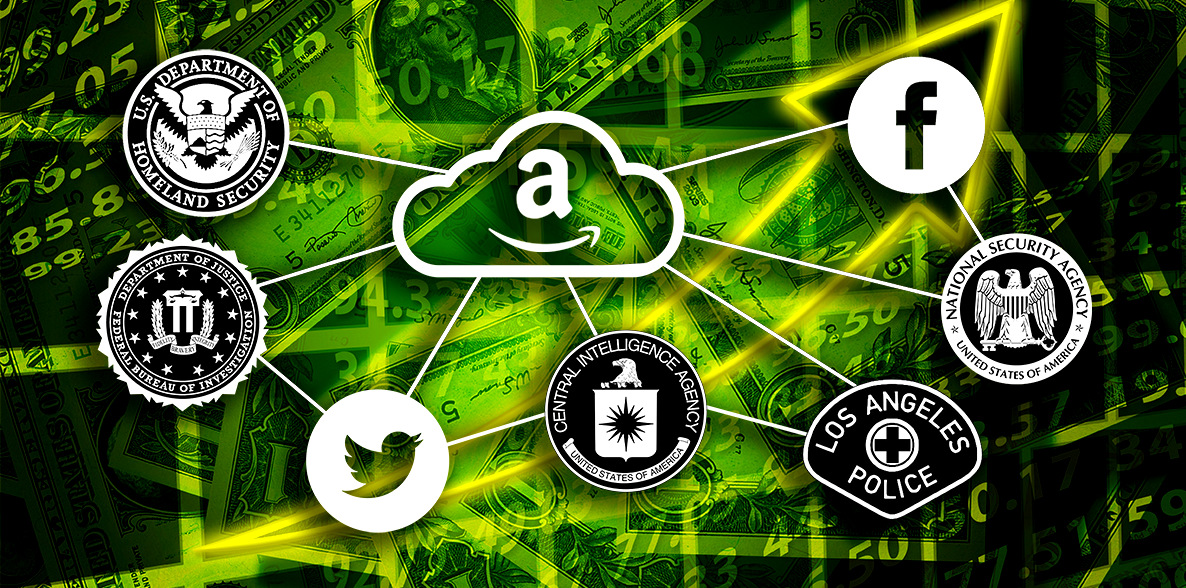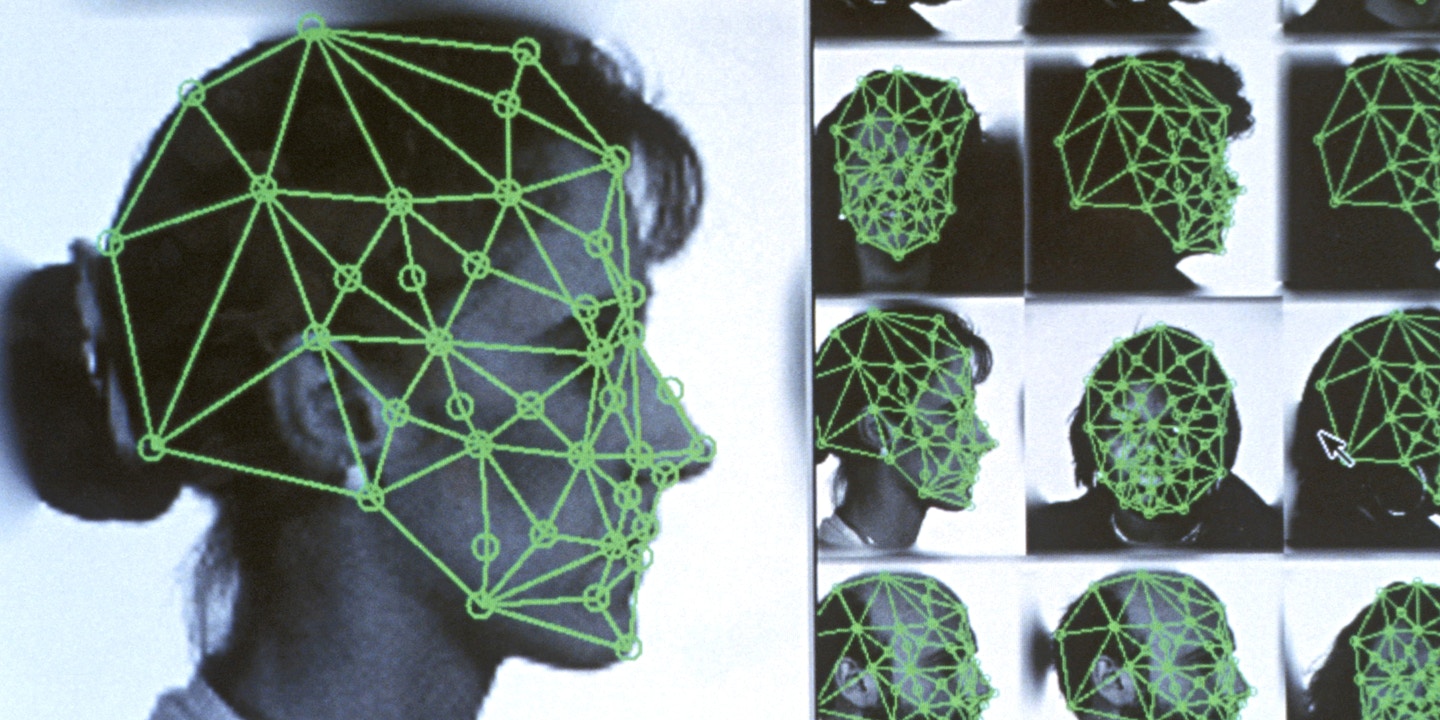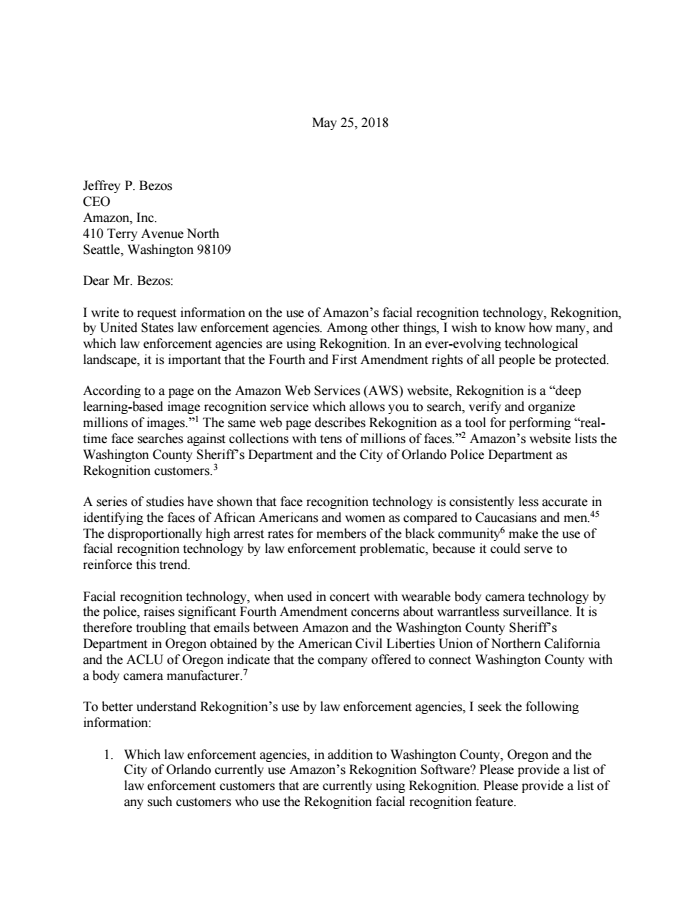“We know that no one ever seizes power with the intention of relinquishing it,” came a warning from George Orwell’s novel, 1984, that is rapidly, wickedly, becoming prophecy with new Amazon eye-in-the- sky technology and a dark and disturbing twist. The American Civil Liberties Union (ACLU) is poking that eye with a sharp stick.
 And Jeff Bezos is not feeling the love.
And Jeff Bezos is not feeling the love.
In what appears to be Bezos’s latest strategic move in the quest to replace God as knower of all things is a hybrid monster of facial recognition software and a doorbell camera widget manufactured by Ring, a company that Amazon bought earlier this year.
In a gross assault on the right to privacy, a patent filed months ago essentially describes a product that captures information on people who as much as walk past a doorbell, sending real-time information to police databases. It also will allow customers the ability to upload to law enforcement photos of anyone they deem might be a sketchy individual.
What does a non-sketchy, normal person wear when ringing a doorbell?
Jacob Snow, a technology and civil liberties attorney for the ACLU, is fired up and fighting:
“It’s rare for patent applications to lay out, in such nightmarish detail, the world a company wants to bring about. Amazon is dreaming of a dangerous future … ”
Or perhaps Bezos dreams of ruling the world.
Biometrics Bastardization
But attaining an unlimited collection of facial snapshots is just the beginning. A deeper dive into the patent application reveals that Amazon is prepping to expand its unlimited munitions stash of photos with other biometrics. And what it plans to extract from unsuspecting folks will horrify freedom-loving Americans.

…click on the above link to read the rest of the article…











 Economic cracks big enough to drive a car industry into are opening up all over the globe. Trade gaps are opening up between major allies. Widening spreads between the dollar and other currencies are shredding emerging markets. As we start into summer, these cracks and several others described below have become big enough to get everyone’s attention, just as I said last year would become the situation.
Economic cracks big enough to drive a car industry into are opening up all over the globe. Trade gaps are opening up between major allies. Widening spreads between the dollar and other currencies are shredding emerging markets. As we start into summer, these cracks and several others described below have become big enough to get everyone’s attention, just as I said last year would become the situation.









